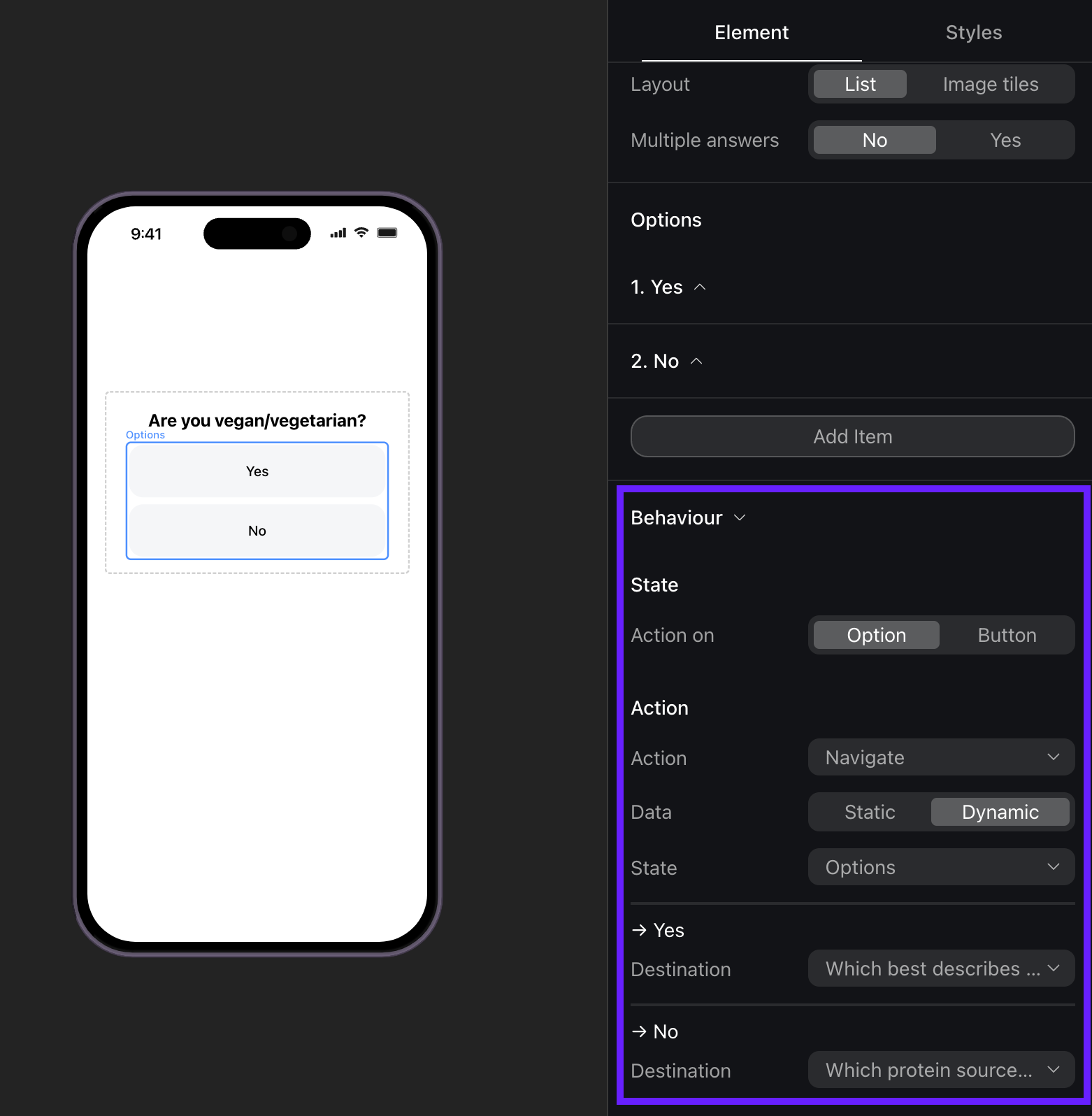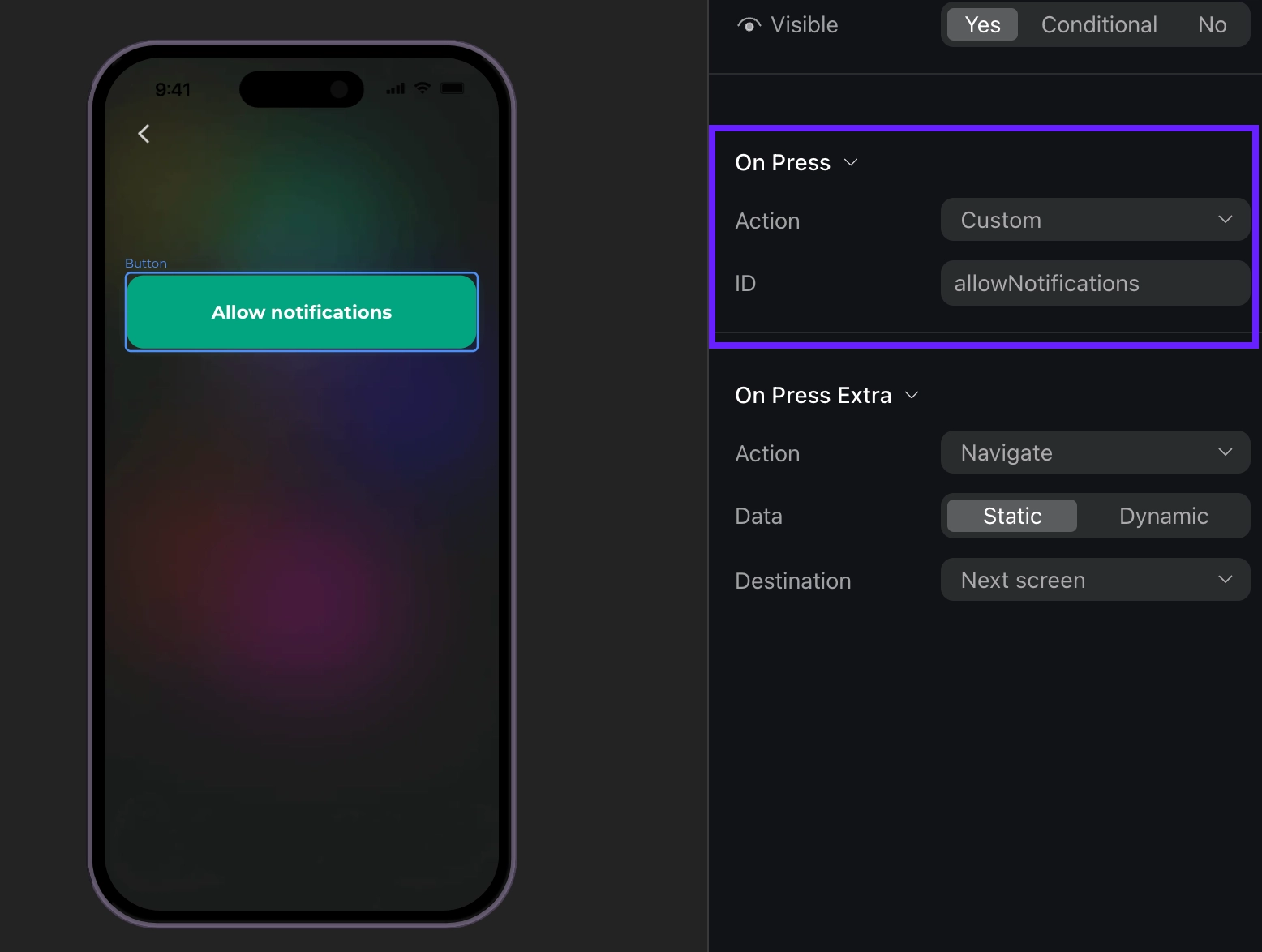Onboarding actions
Actions are the interactive behaviors you assign to onboarding elements, allowing them to respond to user input or handle events. By setting a trigger (like a button press or loader completion) and selecting an action type, you control how users move through and interact with your onboarding flow.
Learn more about branching onboarding flows in the detailed article.
Add actions
The configuration process depends on the element you attach the action to. You can add actions to the following elements:
- Buttons: Configure actions in the On Press dropdown of the Element tab.
- Quizzes: Configure actions in the Behaviour section of the Element tab.
- Loaders: Configure actions in the Complete action section of the Element tab.
For example, here’s where to find it for quizzes:

Action types
When configuring actions, choose one of the following types:
Navigate
Moves the user to another onboarding screen, letting you control flow based on user actions or selections. Ideal for chaining multiple actions for multi-step logic with quizzes.
Show/Hide element
Toggles the visibility of a specified element for conditional content within a screen. Use this to display extra content only when users need it.
Open paywall
Launches your app’s paywall to present purchases or subscriptions. Learn how to handle opening paywall on iOS, Android, React Native, and Flutter.
Scroll to
Programmatically scrolls the view to a target element on the current screen. Helpful for long-form screens when a “See details” button is pressed.
Custom
Allows you to define and execute your own logic based on the action ID. Use this action to trigger behaviors not covered by the standard action types.
Learn how to handle custom action on iOS, Android, React Native, and Flutter.
Close onboarding
Ends the onboarding flow and closes the interface. Use when users finish setup to immediately drop back into the main app.
Learn how to handle onboarding closure on iOS, Android, React Native, and Flutter.
Action triggers
Actions fire depending on the element they’re attached to:
- Button: Runs when a user clicks a button or when a timer completes.
- Quiz: Executes when an option is selected.
- Loader: Triggers after a Loader or Processing finishes.
Action ID
Action ID is not the same as the element ID used for inserting dynamic data with variables. Be sure not to mix them up.
When setting up custom actions for buttons, you may want to handle different buttons the same way using action IDs:
- When adding a button, assign it an ID in the On Press section of the Element tab.
- Use the assigned action ID in your source code.
On iOS devices, onboardings support only actions in the On Press section. The On Press Extra section won’t work because only one view can be displayed at a time—if one action opens a view (like a paywall), the other action cannot execute simultaneously. :::
